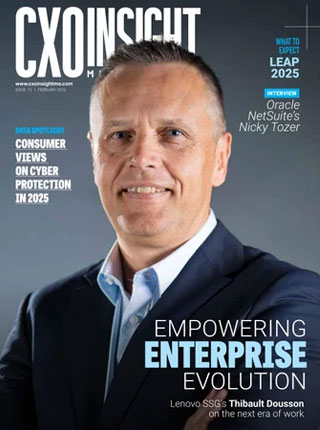Genesys has unveiled insights from a comprehensive global survey on generational customer service preferences, highlighting how Gen Z in Saudi Arabia and the United Arab Emiratesare reshaping customer engagement and workplace dynamics with strong demand for personalised across channels and supportive workplace environments.
Ahead of GITEX, the technology event which seeks to redefine the digital economy landscape, which runs in Dubai from October 14-17, the survey provides businesses with valuable insights into the preferences and priorities of young consumers. The findings indicate Gen Z in the Middle East region place greater emphasis on brand reputation, digital customer service, and flexible work arrangements, compared with the global average.
Buying Factors
The survey found that 67% of Gen Z consumers in the UAE and Saudi Arabia see personalised experiences across various customer service channels as a priority. This cohort prioritises brand reputation for customer support at 11 percentage points greater than the global average, signalling unique regional standards for service excellence. Consumer scrutiny of a brand’s reputation is comprehensive, factoring in not just service quality but also the alignment of a brand’s values with those of the respondents. Additional key factors considered by this cohort are quality (85%) and customer reviews (75%).
Customer Service Expectations
The study also outlines how Gen Z customers prefer digital, self-service, and personalised customer service. Topping the customer services priorities in the UAE and Saud Arabia are total problem-solving of inquiries and issues (73%), prompt resolution (71%) and clear, effective communication during customer service interaction.
The survey showed that Gen Z across select Middle Eastern countries highly value receiving service on their preferred channel, suggesting suppliers must provide more options to meet customer demand. Specifically, 67% of Gen Z and millennials prioritise getting support through these channels, emphasising the importance of offering diverse options like social media, chatbots, and mobile apps.
Evolving Workplace Expectations
When it comes to workplace desires, the survey shows young employees in the region place value on a supportive culture, flexible work arrangements, professional growth, and fair compensation. This illustrates how Middle Eastern organisations are potentially fostering an environment that resonates with the values of Gen Z. However, when it comes to opportunities for professional growth, and compensation, recognition, and benefits, Gen Z expectations in the Middle East fall short by more than five percentage points compared with the global average.
The study shows that 71% of Gen Z respondents in the Middle East expect strong training and development from their employers, while 69% prioritise diversity and inclusion, and 68% want employers to demonstrate social responsibility and sustainability. Moreover, 68% value support for work-life balance, and 67% expect artificial intelligence and technology to enhance their job performance.
“The survey insights demonstrate that Gen Z in the Middle East have different needs and demands when it comes to customer engagement and workplace standards,” said Sebastian Ballerini, VP of Strategic Growth EMEA at Genesys. “To give employers and consumers what they want, the results indicate that organisations need to focus on creating more personalised, digital experiences and build supportive work environments to attract and retain this generation. These insights will be crucial as Genesys expands it efforts across this vibrant region, underscoring our commitment to innovation and co-creating hyper-personalisation with our partners and customers.”
The full global report ‘Generational Dynamics and the Experience Economy’ can be accessed here. During GITEX, Genesys will be at Hall 20, Booth D10, where visitors can see live demos of new AI innovations like Virtual Agent and explore how they can make use of the latest technology advancements to ensure better workforce efficiency, improve employee learning and experience, and deliver better customer satisfaction.










Discussion about this post